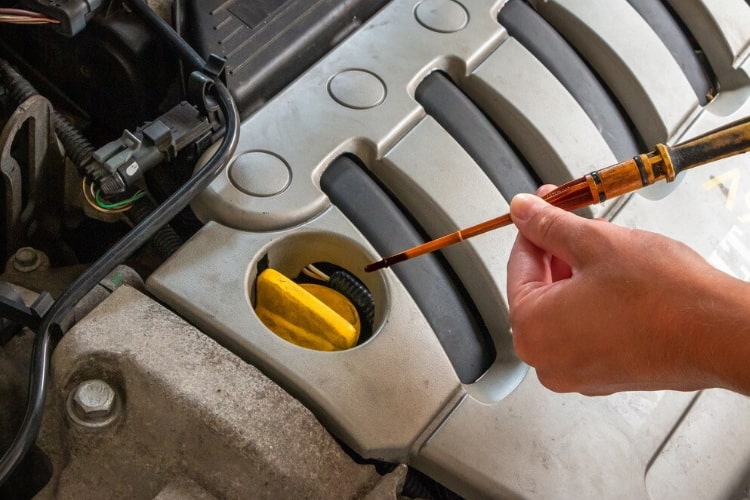We all know how important it is to get your oil changed. Not only does clean oil keep your engine running smoothly but it also improves your gas mileage and overall upkeep of your car. However, are the “rules/myths” that go along with oil changes (every 3,000 miles) actually the truth? We decided to put five of the top oil myths to the test to see if they really rang true or were as fake as a three dollar bill.
The “W” in 10W-30 oil stands for “weight.”
One common misconception about engine oil is that the “W” in the type stands for weight. This is due to the fact that when your purchase oil for your engine you need to know its “viscosity” or how thick it is. The less thick the oil, the smoother it moves through the engine and lubricates your car’s parts. You want to make sure the oil you purchase is neither to thick so it clogs the engine or too thin that it moves like water through the engine.
Dark Oil Means It’s Dirty
I’m sure most of you have had some point where you noticed your oil was black and thought “time for an oil change”! This is due to the fact we’ve all been told that dirty oil can cause sludge to build up in your engine which can create problems for your fuel efficiency and overall engine quality. However, this is just not true. Dark oil actually proves that your oil is working properly because it is dispersing particles to prevent build up and keep it moving along.
You MUST Change Your Oil Every 3,000 Miles
There used to be a time where manufacturers recommended that you change your oil every 3,000 miles. This was due to the fact old oil caused build up in the engine and would degrade overall performance. However, this simply isn’t the case anymore. Thanks to new modern oils and better engineering of vehicles you can now go about 7,500 miles without an oil change. So rest easy, your engine is not going to blow up because you forgot to get your oil changed.
Additives Will Improve Engine Oil Performance
While it’s true that additives can improve your engine oil the fact of the matter is most additives have already been put into the oil prior to purchase. So purchasing additional additives is just a waste of money. It can also decrease the viscosity of your oil which can make it harder for it to push build up through the engine.
Synthetic Engine Oil Causes Leaks
We’re not sure where the fear came from that synthetic oil causes leaks but the truth of the matter is it doesn’t. Oil manufacturers have long since discovered how to formulate synthetic oil so that seal shrinkage is prevented. However, we will make note that if you own a much older vehicle that was designed for petroleum-based oil, leaks can occur due to the fact the system was not designed for it.








Leave a Comment